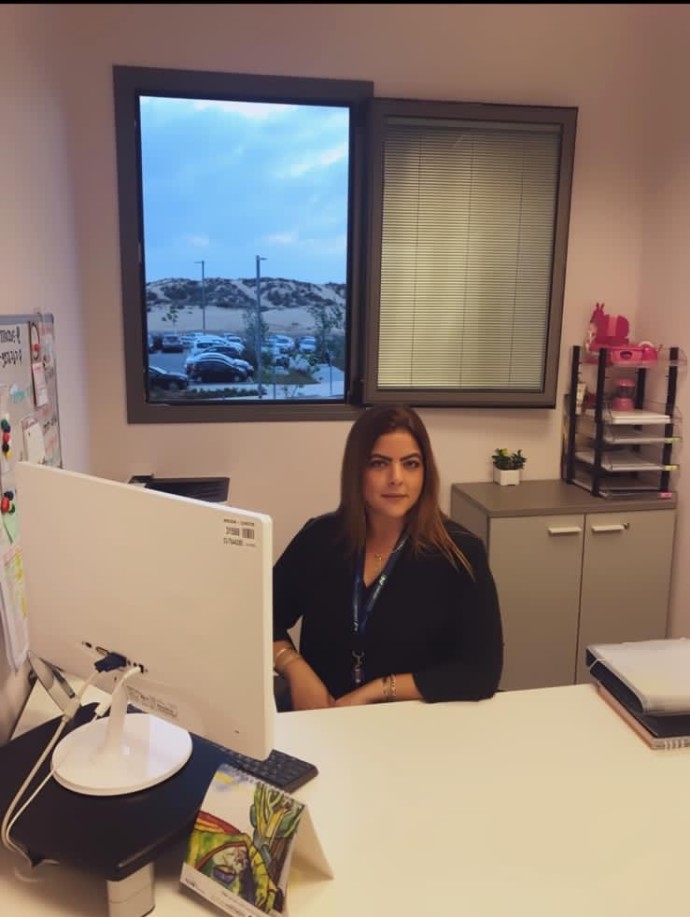Before Assuta Ashdod opened in 2017, local residents in need of emergency care were rushed to hospitals in Ashkelon, Rehovot, and Tel Aviv, 35 to 50 minutes away.
Those critical minutes often meant the difference between life and death.
Just ask Lucy Tikulskier, a lifetime resident of Ashdod. When she was seven years old, her father suffered a heart attack. By the time he reached the hospital in Ashkelon, he collapsed on the emergency room floor, never to recover. He died two weeks later.
But his daughter vowed to work for change.
Unfortunately, many Israeli citizens are in the same predicament. Those who live outside major population centers are often forced to travel half an hour or more for an emergency room visit.
For Ashdodis, the opening of Assuta Ashdod hospital permanently changed the equation. They now have a world class hospital, in their own city, ready and able to treat critically ill patients, along with all the basic services a hospital offers.
“In trauma care, we always say that time equals life,” Dr. Itai Zoaretz, head of Assuta Ashdod’s Urgent Care and Trauma Center, explains. “From the moment that a person is seriously injured the timer starts running. And if emergency services need to take the patient and travel somewhere 30 minutes away…the time it takes could impact their life. But now people can arrive at Assuta within a matter of minutes. And there are cases when those few minutes save lives.”

Basic and Urgent Care, Close to Home
A hospital treats more than just critically ill patients, of course. In an interview with the Jerusalem Post, Zoaretz describes the hospital’s enormous impact on the general welfare of Ashdod’s residents.
“When we opened the hospital we saw people with chronic illnesses that had not been treated, or had been diagnosed incorrectly,” Zoaretz explains. “People with high blood pressure, diabetes, not necessarily traumatic injuries. And this was because they didn’t have the extra services of a hospital in the area.
“Israeli health care officials thought these patients would get on a bus and travel to Rehovot or Ramat Gan, but that’s not what they did,” Zoaretz says. “Older people who needed care would not sit in a bus for hours or stand in the heat.”
But with Assuta Ashdod’s opening, the sick and elderly gained access to premium healthcare in their city for the first time. Moreover, those who needed urgent care instantly had a local option.
Ties that Bind
In order to strengthen the relationship between first responders and hospital staff, members of Assuta’s medical team, including Zoaretz, participated in training with Magen David Adom (MDA) to build connections and trust between the two entities.
In 2019, Zoaretz joined the MDA first responders team in Ashdod, working with them to answer emergency calls outside his working hours.
“As a doctor, I see it as my duty to be a part of MDA, and to help patients in the field,” he says. “As a part of the cooperation between MDA and the hospital, my volunteering adds value to our relationship, which ultimately benefits the patients."
Chaim Cardi, MDA’s regional manager, confirms that Zoaretz’s participation strengthened the ties between Assuta Ashdod and the first responders. “It’s truly incredible to see a busy, eminent medical professional contributing his time and expertise alongside our first responders. I applaud him and hope to see more volunteers with medical training in our MDA First Responders unit.”
“It took time,” Zoaretz tells the Post regarding building cooperation between the teams. “But I am happy to say that we now work closely with MDA..”
A Haven During Missile Attack
During 2021’s Operation Guardian of the Walls, Hamas terrorists aimed hundreds of rockets at the port city of Ashdod, forcing residents to flee to bomb shelters. Asked how the hospital coped with the war and the influx of injured Ashdodis, Zoaretz explains that the hospital has an emergency plan to deal with such circumstances.
“We have a complete procedure in place for escalations and indeed during the last Gaza war, we received more than a few injured patients,” he says. “There were direct rocket hits and there were several seriously injured people that were treated here.
“Again, if we hadn’t been here, it is not clear if the sick and injured would have made it to a different hospital. It’s also important to remember that during total war, roads leading to other cities may be closed, making Assuta Ashdod even more important.”
The availability of hospital and emergency care also provides a sense of security to Ashdod residents, both during war and peace time. “I think that it is critical for the emotional wellbeing of the community,” Zoaretz explains. “They know that if G-d forbid something happens there is a hospital in the area that can treat them. This, I think, strengthens us as a community, and even as a country.”
Giving Back
Today, Lucy Tikulskier is a staff member at Assuta Ashdod. She waited all her life for the opportunity to give to others what she herself could not give her father: a chance at life.
“After I was hired, I went to the cemetery to tell my father the good news," Lucy says. “He would have been so proud of me, and grateful to know that I was a part of making sure that what happened to him would not happen to anyone else.
“We all need to say ‘thank you’ to those who kept pushing for a hospital here. It simply saves lives in the city and in the region.”
This article was written in cooperation with Assuta Ashdod University Hospital.
